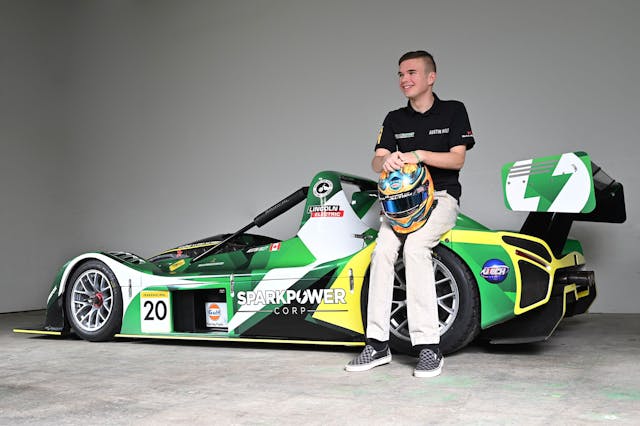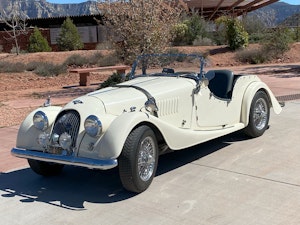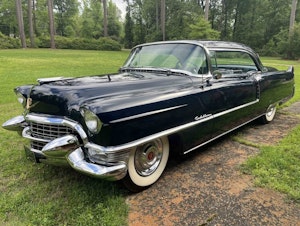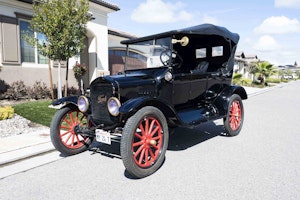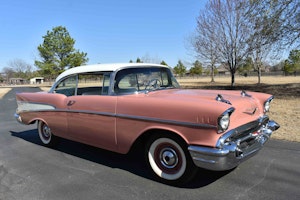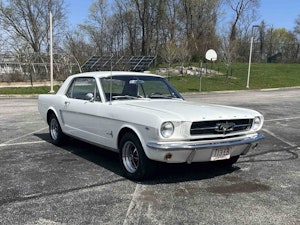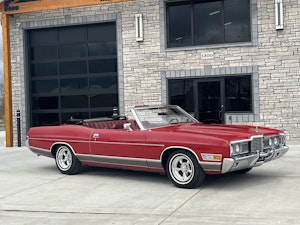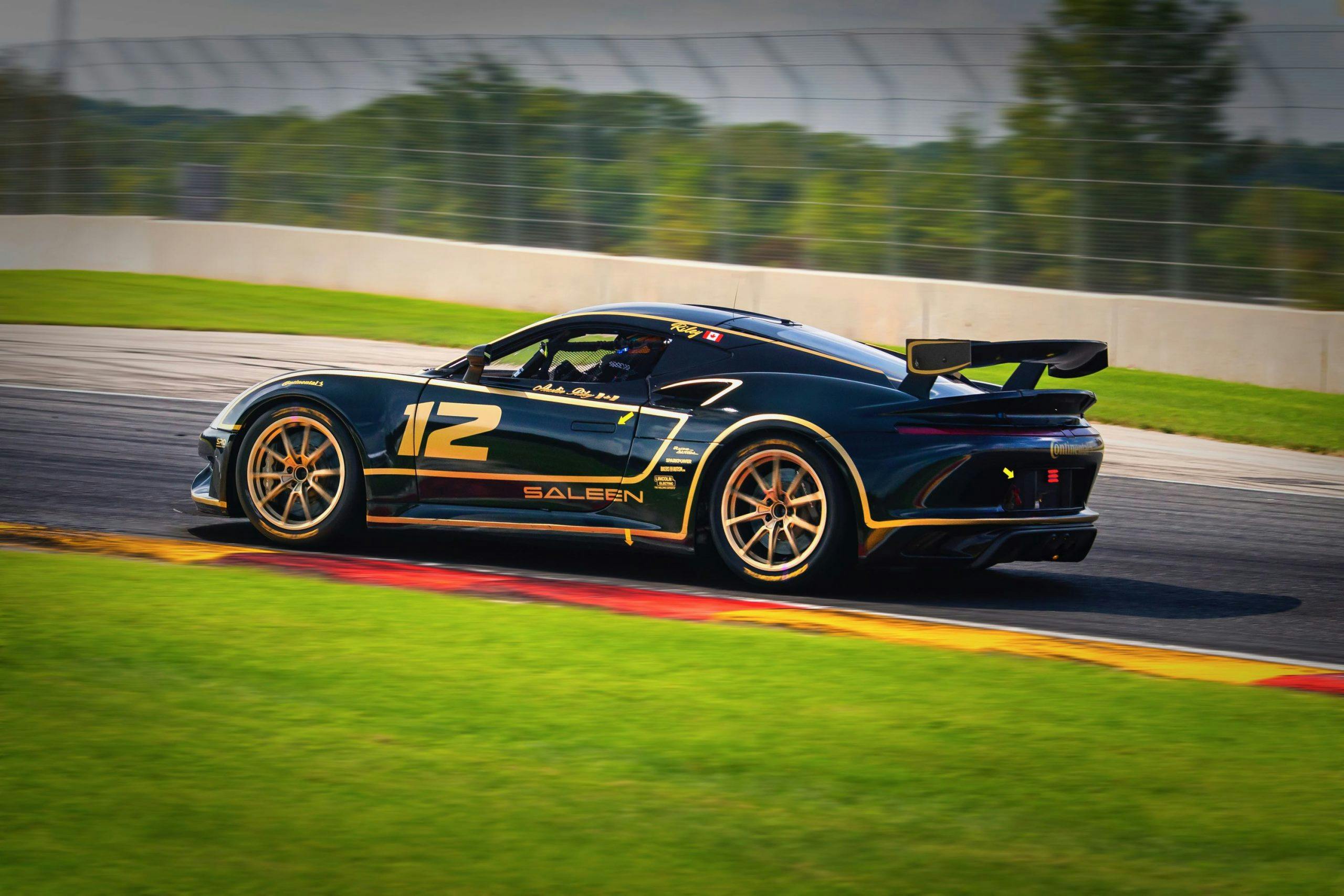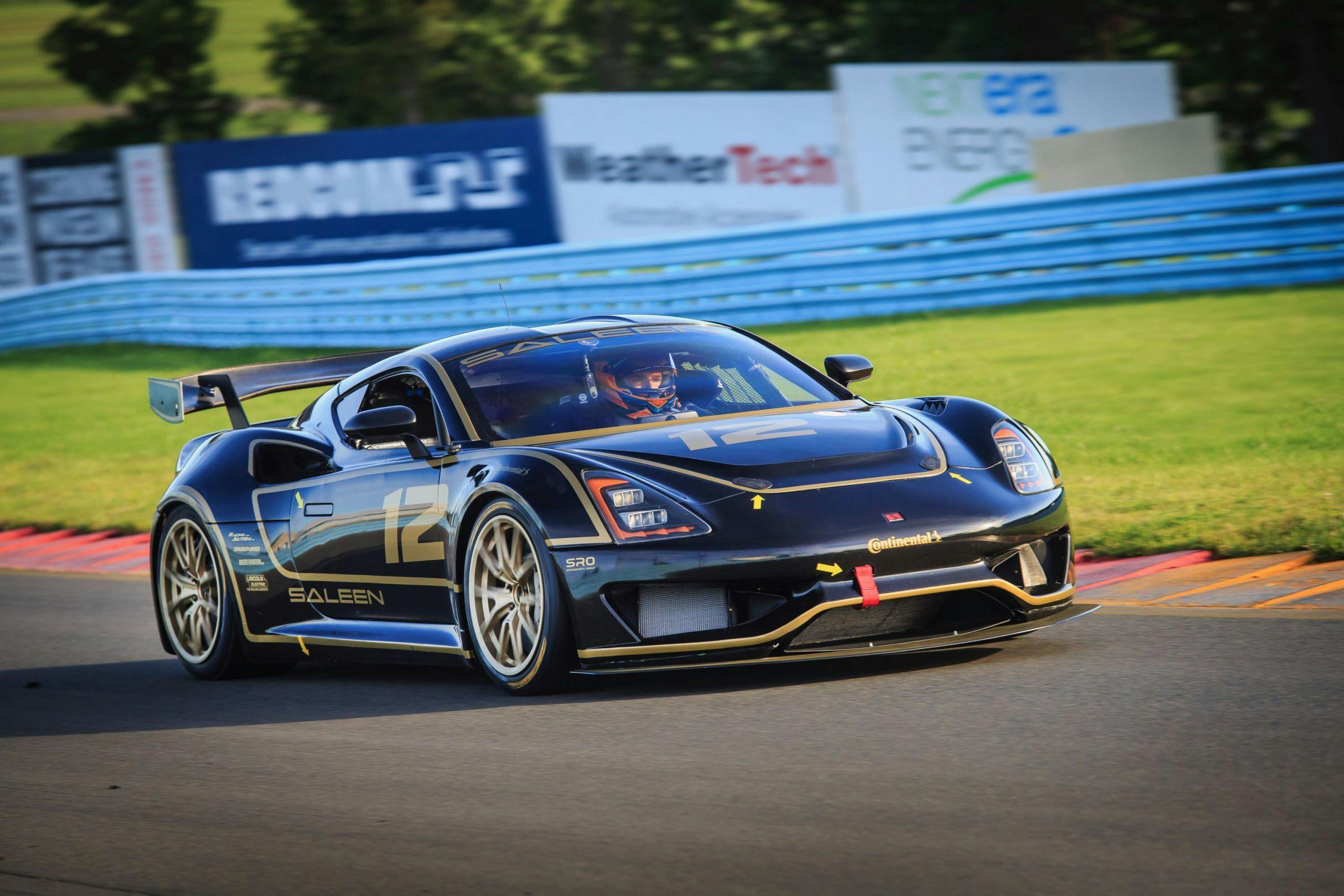Media | Articles
Autism doesn’t stop Austin Riley from racing—or winning
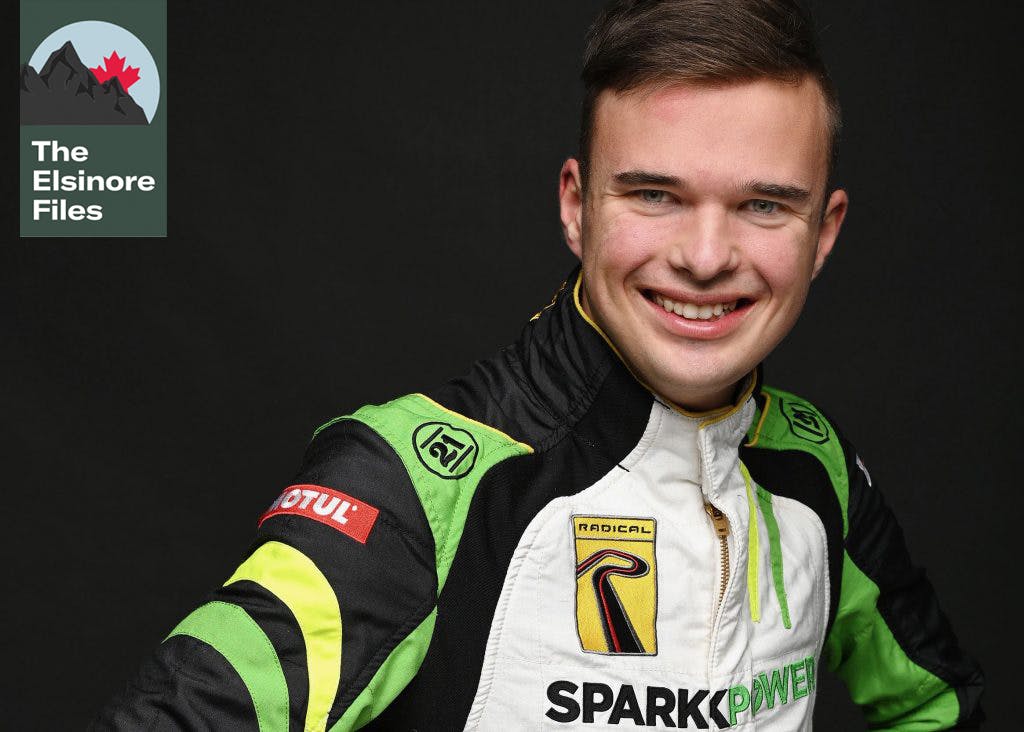
I first met Austin Riley under the tent of our team’s paddock setup at Canadian Tire Motorsport Park. He’d arrived in the 2017 Nissan Micra Cup championship with a bit of fanfare, since his Racing with Autism program was already well known.
Austin was supported by my former Micra Cup teammate, Metod Topolnik. He and wife Marie have a young son of their own with autism. In many ways, Austin was like any another awkward teenager or competitor with whom I’d go wheel-to-wheel. He struck me, however, as a unique personality; and if any sport is filled with uncommon personalities, it’s motor racing.
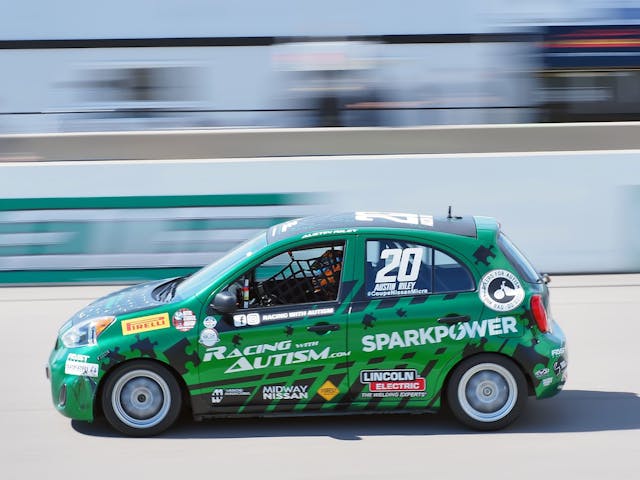
Austin went on to finish 16th in the championship and a remarkable fourth in the rookie standings. The following season, Austin captured a number of podiums and finished ninth in the 2018 championship. He was a rookie no longer.

The Austin who I met at the racetrack that day was not the Austin who first strapped himself into a kart nine years before. Austin spent much of his youth misdiagnosed, but when the family moved to Uxbridge, Ontario, Austin’s new teacher recognized some similarities between him and her autistic son and nudged the Riley family in the right direction. To this day, the Rileys credit Mrs. Rodych with reorienting their lives.

For Austin, racing was an opportunity to be recognized for his abilities behind the wheel, rather than being teased for any disabilities he may have displayed in school. In addition to a tightly-knit community, racing’s also given Austin coping skills that translate into his daily life.
Marketplace
Buy and sell classics with confidence
“When Austin started racing karts he was eight years old,” Jason says, “If something bad happened, it would ruin the whole weekend. Now, he could be leading the biggest race for the championship and the car breaks—he’s over it in five minutes, and he’s taken that same approach to other aspects of life. When he’s having a bad day, he’s learned that it doesn’t have to affect everything.”

Austin raced karts until he was 17, picking off wins and top results throughout his karting career. It’s common for racing drivers to start with karts and graduate to cars in their teens, and Austin completed his first racing school with Skip Barber at the age of 15.
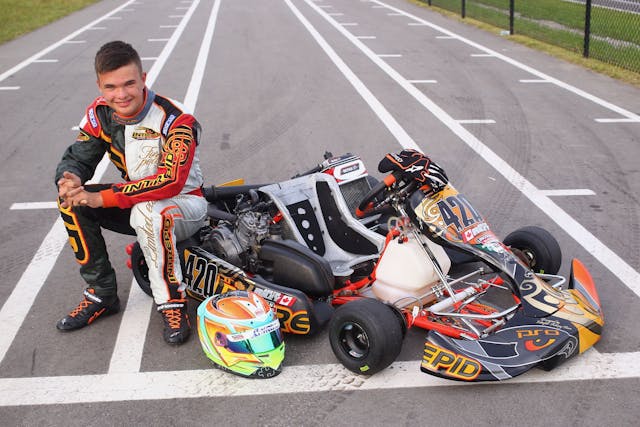
During his karting years, the family realized that Austin’s story inspired people. They began speaking to groups and schools while they traveled across North America following Austin’s racing schedule. Their Racing with Autism program has since taken Austin and his family around the world.
“When Austin would get up on the podium, he got the loudest cheers because the word travelled around the paddock that he was the autistic kid from Ontario,” Jason says. “When we’d get back to our trailer, all sorts of families wanted to learn more about his story and congratulate him in person.
“We thought we should do more of this, and we came up with the idea for the Racing with Autism tour, where we would just go from one race to the next and, in between races, we would visit schools all along the way. In the back of my mind, I’m thinking this is going to be a life-changing thing for Austin.
“When you see the way the kids—whether they have disabilities or not—respond to Austin’s life story, it’s really inspiring,” he continues. “You can actually tangibly make a difference in these kids’ lives because they can see what Austin’s had to face and the struggles he’s had to go through. They realize it’s not like they’re the only ones being picked on or bullied. It gives those kids hope and belief in themselves—if Austin can do it, so can they.”
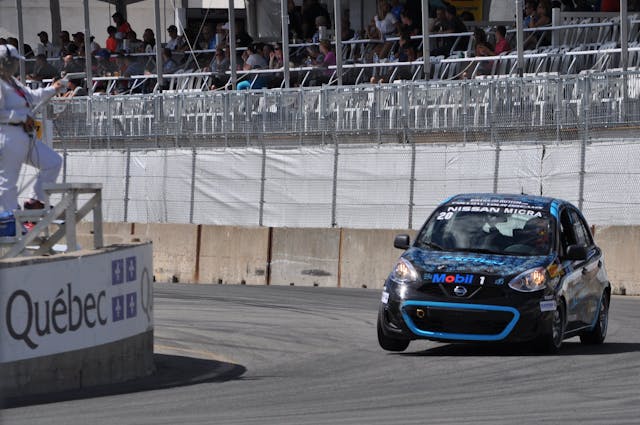
Competing in two championships is a serious undertaking for any racing driver, but that’s what Austin did in 2019. He began with a full Nissan Micra Cup program that consisted of 12 races over six weekends. It finished with Austin taking three podiums and earning seventh in the final standings.
Austin then added a full schedule in the SRO America Saleen Cup, which fields identically prepared Saleen S1 race cars. During the course of that season, Austin won firsts and podiums at numerous events, eventually tying for the young driver category championship and receiving the Scholarship Award from Steve Saleen himself.
IMSA sports car racing is Austin’s ultimate goal. He took a big step up the motorsport ladder with a full season in the Radical Canada East championship in 2020. The series is based on identical Radical SR3 open-top sports racing cars, and their performance is formidable.
The Nissan Micra Cup race car was indeed the slowest car I’ve ever raced, but I can’t imagine jumping into a Radical SR3 and getting up to speed quickly. The SR3 is a proper racing car, with a chassis constructed of a steel tube frame and carbon fibre. Even with a small-displacement four-cylinder, it’s rapid—the car only weighs 1200 pounds. The Radical the kind of car that’s capable of accelerating from 0 to 100 km/h in the low 3-second range, but that’s only one measurement of its dialed-in personality: its low mass, Hankook slicks, and aero grip mean that the SR3 demands respect from drivers.
Austin, however, made the transition from Micra to Radical almost effortlessly. “[The Radical] is significantly faster than the Micra, which makes Austin more comfortable,” Jason says. “His brain processes information at an incredible rate and what we found with Austin driving the Micra was that it caused a lot of anxiety because his mind would be ahead of where he actually was on track.”
With the Micra Cup car, the driver is only busy in the corners; when dropping the hammer and going from one corner to the next, the tiny Nissan’s intensity feels on par with, say, a golf cart.
“The pace of the Radical is almost on pace for the way Austin processes information—the faster the better for him. It was like the more he raced, the more comfortable he got and the better he got,” Jason says.
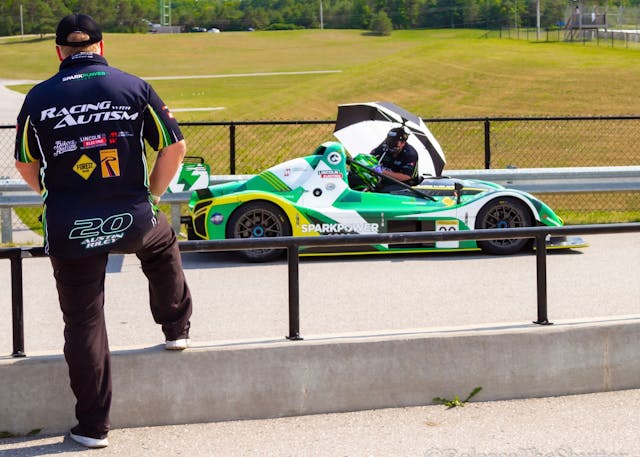
When a racing driver is behind the wheel, their number one priority is to adapt, whether to changing track conditions, the position of other cars, or the behavior of their car—often, all at once.
Adapt to the Radical is exactly what Austin did. He competed in the full Radical Canada East Cup of 14 races, taking 10 wins and making the podium for each race. With that outstanding performance, he won the championship, which is the first major championship to be won by any driver with autism.
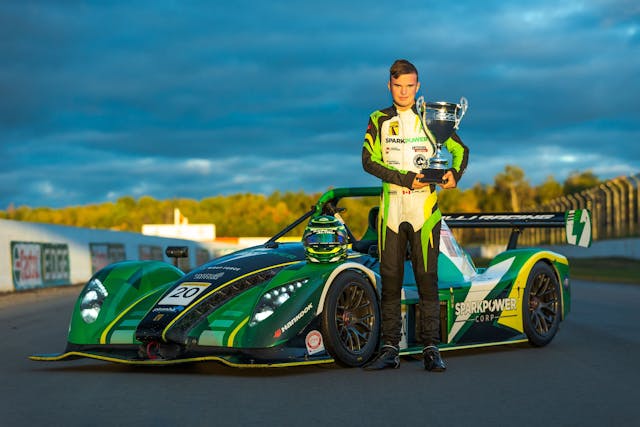
Today, there are other drivers who are open about being diagnosed as autistic. NASCAR driver Armani Williams is one of them. Jessica Benge, who worked with Austin in the past, started Racing with Autism Australia and is now supporting a number of racers with autism.
Austin’s a card-carrying member of the car enthusiast club, having recently bought his first car. It’s a Nissan Micra, of course, with a manual transmission—the only way he would have it.
For 2021, Austin’s driving gear and Radical race car will have a new brand on board: Hagerty. We’re coming along for the ride to help bring his inspiring story to even more people around the world. If his performance last year is any indication, we’re looking forward to Austin bringing home another dominating championship.
